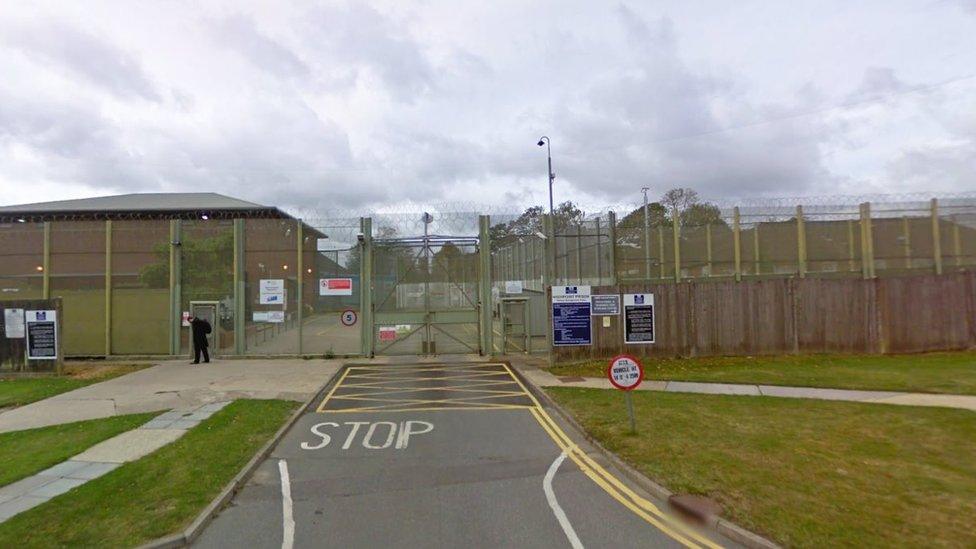Highpoint Prison inmate death 'could have been prevented'
- Published

Daniel Tudor deteriorated rapidly while being held at the segregation unit at Highpoint
Earlier action to address a prisoner's high blood sugar levels might have prevented his death, a report said.
Daniel Tudor, 28, died in hospital of pneumonia after refusing food, drink and medical help at Highpoint Prison in Stradishall, Suffolk, in 2015.
The Prisons and Probation Ombudsman said it had many concerns, including "two missed opportunities" when blood test results were not followed up.
Care UK, which provided clinical staff, said it had revised its strategy.
Tudor, who was sentenced to three years in jail in July 2015 for robbery, had a history of self-harm and was segregated on 5 November 2015 after attacking a member of staff.
While on the unit he deteriorated rapidly and refused food and drink except for a small amount of fruit, water and milk.
No beds available
Report author Nigel Newcomen said healthcare staff concentrated on Tudor's mental health but "did not adequately assess his deteriorating physical health".
On 18 November a psychiatrist called for a move to a prison with 24-hour healthcare but no suitable beds were available.
Tudor was then found to have high blood sugar on tests taken two days apart.
"This should have prompted further investigation which may have resulted in him being admitted to hospital earlier yet no-one took any action," said Mr Newcomen.
"The clinical reviewer felt that earlier action may have prevented Mr Tudor's death."
An ambulance was called on 24 November and Tudor died four days later.
The report said the Immigration Service planned to deport Mr Tudor back to Romania after his sentence.
Care UK said its team met with Tudor on a regular basis but "were unable to prevent his deterioration".
Its revised strategy includes meetings for complex cases and care plans for prisoners refusing food and drink, including key indicators for dehydration.
A Prison Service spokeswoman said: "Our thoughts remain with Mr Tudor's family and friends. Since his death HMP Highpoint has improved mental health training for staff, gives one-to-one support to every prisoner and ensures those held in segregation are reviewed more regularly."
- Published18 June 2019

- Published26 March 2019
